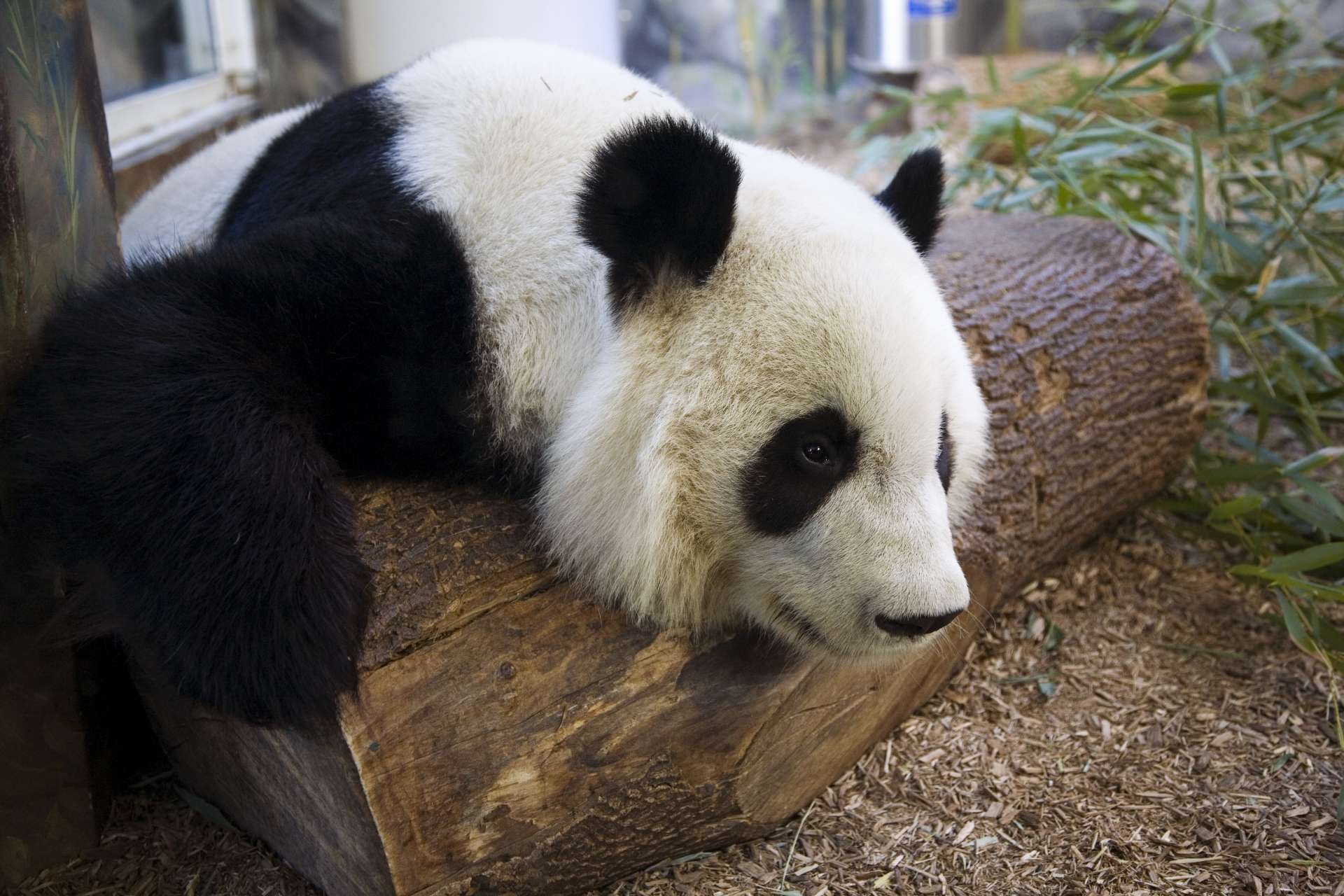
Chengdu, China
This is Mei Lan. He was born on September 6, 2006, and was the first cub of Lun Lun and Yang Yang born at Zoo Atlanta. As part of our giant panda loan agreement with China, in 2010, Mei Lan was sent to Chengdu, where he joined the resident population at the Chengdu Research Base of Giant Panda Breeding. Since Mei Lan’s arrival in Chengdu, he has fathered his own cubs at the Research Base!
Why do they need you?
The Chinese government has established more than 50 panda reserves, but only around 61 percent of the country’s giant panda population is protected by these reserves. The latest census in 2014 found that there were 1,864 giant pandas in the wild. In the past decade, giant panda numbers have risen by 17 percent. While this increase may sound like a lot, the total number of giant pandas is still low for breeding and maintaining a viable population.
Panda mothers like to use large tree hollows for their dens. Logging in established forests removes these old-growth trees, leaving pandas less-suitable denning areas. Fragmented habitats isolate small populations of giant pandas and prevent them from mixing and breeding.
How is Zoo Atlanta helping?
- Zoo Atlanta has contributed over $17 million for the conservation of giant pandas in China, making this our most significant financial investment in wildlife conservation. The majority of these funds are used for projects for wild giant pandas, and eight different nature reserves have been supported with these funds.
- The giant pandas at Zoo Atlanta are on loan from China. The Zoo pays an annual loan fee for the pandas, and this money is used for giant panda conservation.
- Projects fall under three categories: research, infrastructure, and management. Examples of giant panda conservation activities supported by Zoo Atlanta include research on genetic diversity, construction of protection stations, reserve management, and reforestation projects, and purchase of equipment used by reserve staff to census and monitor panda populations.
Our Team
Dr. Sam Rivera
Senior Clinical Veterinarian at Zoo Atlanta
Dr. Sam Rivera, Senior Clinical Veterinarian at Zoo Atlanta, has been an active participant in the Zoo’s giant panda program for many years. His main areas of interest are all aspects of clinical medicine and establishing normal baseline values for the giant pandas in our care. Another area of great interest to him is ultrasonography and its application for the diagnosis of pregnancy and monitoring fetal development.
Meet SamHow can you help save the pandas?
-
- Support Zoo Atlanta by visiting, becoming a Member or donating! Funding for giant panda conservation and research is greatly supported by just that!
- Even though we may not have wild pandas here in Georgia, we can help protect their black bear counterparts by:
- Recognizing wild areas with sparse human interference are the most vital habitat for black bears and by protecting those areas, we can protect native wildlife like black bears.
- Keeping wild bears wild! Human actions have a big impact on wild bears. If you encounter a bear in the wild, give it plenty of space and never approach or feed it.
Want to learn more?
Check out these links:
Chengdu Research Base of Giant Panda Breeding
International Union for Conservation of Nature (IUCN)
Research/conservation papers
Beyond the Zoo
Learn more about Zoo Atlanta’s commitment to saving species.
The global decline of species and their habitats makes it clear that we need a multifaceted approach to conservation. Zoos are a critical component of this approach, with a responsibility to be a force that drives action.
View the ReportGiant Panda Research
Zoo Atlanta’s research program on giant pandas began in March 1997. Research is conducted both here at Zoo Atlanta and...
Learn MoreWhat’s it mean when an animal is endangered?
What does it mean when an animal becomes endangered? There are a number of factors that fall under this consideration,...
Learn More